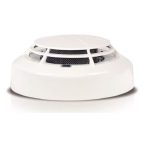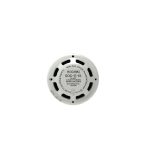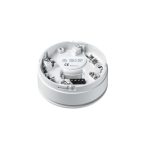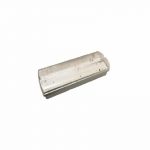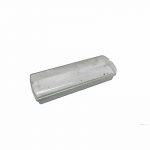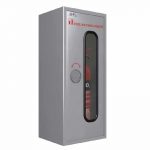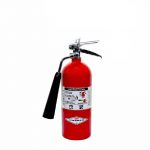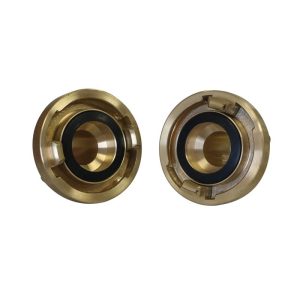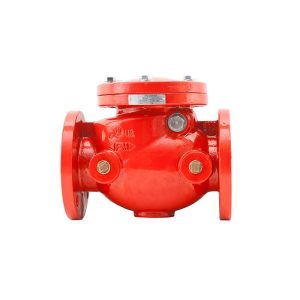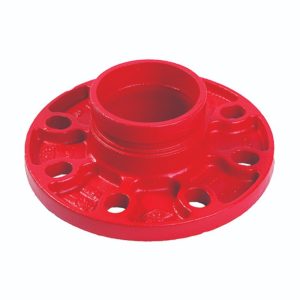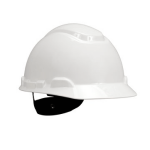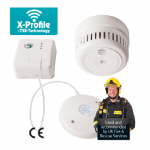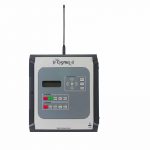Your list is empty, add products to the list to send a request
Top 5 Benefits of Installing Heat Detectors in Your Property

17
Mar
Every year, fires cause significant damage to valuable properties and result in countless injuries and fatalities. While most people are familiar with smoke detectors, many overlook the importance of heat detectors as a critical component of fire safety. Unlike smoke alarms, which detect particles in the air, heat detectors respond to temperature changes, making them a valuable tool in preventing fire-related disasters. A heat detector provides an added layer of protection by identifying fires that might not produce much smoke initially, such as electrical fires or those fueled by smoldering materials. In this article, we will explore the benefits of installing a heat detector sensor and share the best ones for optimal safety.
Understanding Heat Detectors
Heat detectors work differently from smoke detectors because they mainly rely on temperature changes rather than airborne particles to trigger an alarm. This is the main feature that makes them particularly useful in environments where smoke detectors may produce false alarms due to cooking fumes, steam, or dust.
There are two main types of heat detectors:
- Rate-of-Rise Detectors: These detectors work by responding to rapid increases in the temperature. They can even work when the overall temperature is still relatively low, which makes them quite precise and useful.
- Fixed-Temperature Detectors: This fire alarm heat detector activates when the surrounding temperature reaches a pre-set threshold. This feature makes them ideal for environments where gradual heat buildup is a concern. A linear heat detector also utilizes fixed temperature sensing principles.
Reasons to Install Heat Detectors in Your Property
Apart from simply detecting heat, there are several benefits of getting a heat detector sensor installed in your building or homes. Here are the top reasons to do so:
1. Faster Response in Slow-Burning Fires
Not all fires produce a lot of smoke when they erupt. Some produce low amounts of smoke which makes it even harder to detect them. However, a heat detector excels in identifying these slow-burning fires. Some of the most common examples of such fires are electrical fires. These fires often start within walls and the smoke takes much longer to escape and be detected. In these situations, a fire alarm heat detector can provide an early warning, helping you act before the fire spreads.
2. Enhanced Protection in High-Risk Areas
Some areas are more prone to fires than others, such as kitchens, garages, and workshops. Fires can break out easily in such places. However, the higher rate of heat and fumes in such places can also cause false alarms in smoke detectors. In such cases, heat detectors only activate with actual temperature increases, making them a better choice. Similarly, in kitchens, they detect grease fires without reacting to cooking smoke.
3. Reliable Performance in Harsh Environments
Smoke detectors are not always suitable for certain locations due to environmental factors. Places with high humidity, excessive dust, or airborne particles, such as attics, basements, and warehouses, may interfere with the functionality of traditional smoke alarms. Heat detectors, however, are designed to withstand these conditions, making them a more reliable option in challenging environments.
4. Complementary Layer of Overall Fire Safety
Fire safety is most effective when multiple layers of protection are in place. It is better to make heat detectors work alongside smoke alarms and sprinkler systems to provide comprehensive coverage. This layered approach is increasingly recommended in building codes and fire safety guidelines, ensuring that properties are better protected from different types of fire hazards. By installing heat detectors in conjunction with smoke alarms, you maximize your chances of early detection, allowing you to take swift action to protect your property and loved ones.
Top Heat Detectors You Can Trust
If you’re considering adding heat detectors to your fire safety system, here are some top-rated options:

The Firehawk FHH10 is a high-quality heat detector designed for long-term use. With a 10-year sealed lithium battery, this device provides reliable protection without the need for frequent battery changes. It features an alarm silence function, a loud 85-decibel horn.
Specifications:
- Advanced thermistor heat detection
- 10-year battery life
- Low battery indicator
- Ceiling-mounted design

Ideal for areas where smoke detectors may not be suitable, this fixed-temperature heat detector is designed for fast response to absolute temperature changes. It is particularly useful for industrial environments and marine applications.
Specifications:
- Fixed temperature: 90°C
- IP55-rated protection
- Fast reset time (2-5 seconds)
- Fire-resistant material construction

This heat detector utilizes infrared technology to detect smoke and heat, making it suitable for locations with dense smoke production, such as warehouses and manufacturing plants.
Specifications:
- EN54 compliant
- Dual detection method (rate-of-rise & fixed heat)
- Compatible with all Fyreye bases
- Alarm trigger at 57°C

With intelligent calibration to reduce false alarms, this addressable heat detector is a great choice for modern fire alarm systems.
Specifications:
- Two indication LEDs
- Class A1 sensitivity
- EN54-5 certified

Designed for standalone use, this battery-operated heat detector is easy to install and provides reliable fire detection in residential and commercial spaces.
Specifications:
- 9V battery-operated
- Fixed detecting temperature method
- Loud 85dB alarm

This model integrates seamlessly into existing fire alarm systems and features dual LED indicators for 360-degree visibility.
Specifications:
- Available in 2-wire & 4-wire models
- Analogue detection technology
- Auto reset feature
Conclusion
A heat detector sensor plays a necessary role in fire safety by detecting fires that smoke alarms might miss, especially in high-risk areas. They provide faster responses in slow-burning fires, reduce false alarms, and function effectively in harsh environments. Installing a combination of heat detectors and smoke alarms is the best way to enhance your fire safety system and protect your property. Therefore, whether you’re safeguarding your home, office, or industrial space, investing in high-quality heat detectors is a smart decision. With a range of models available, you can choose the one that best suits your needs and enjoy greater peace of mind knowing that your property is well protected.



